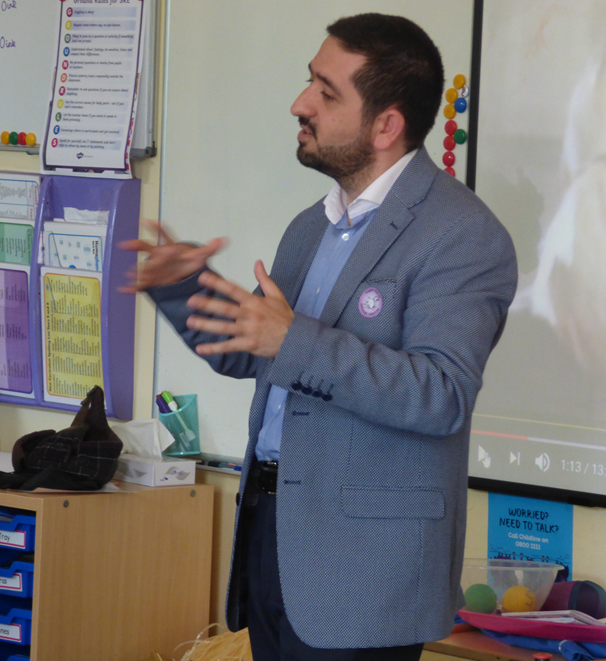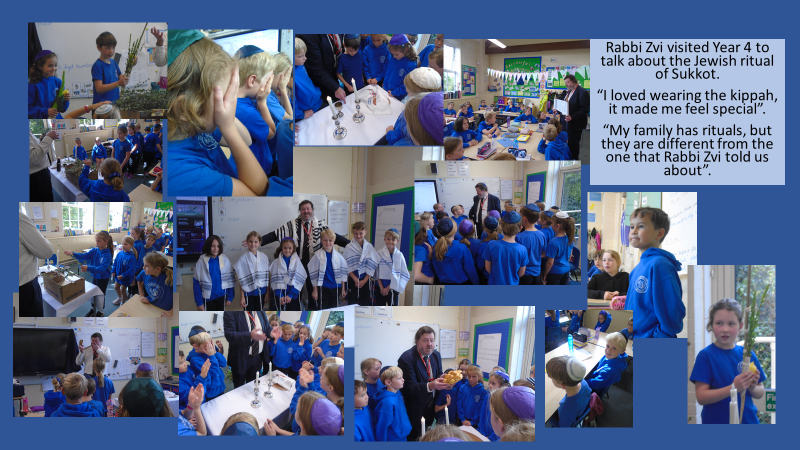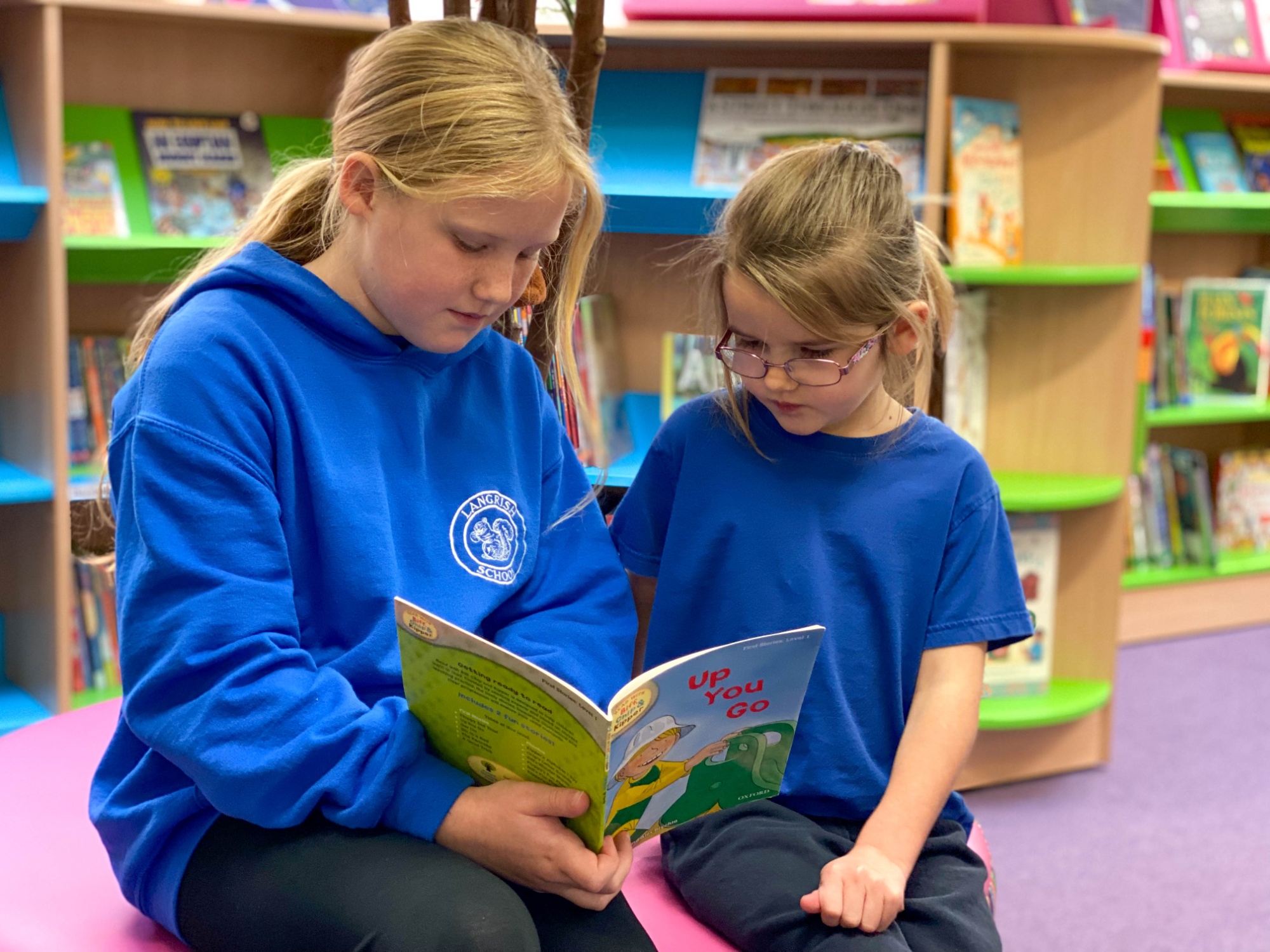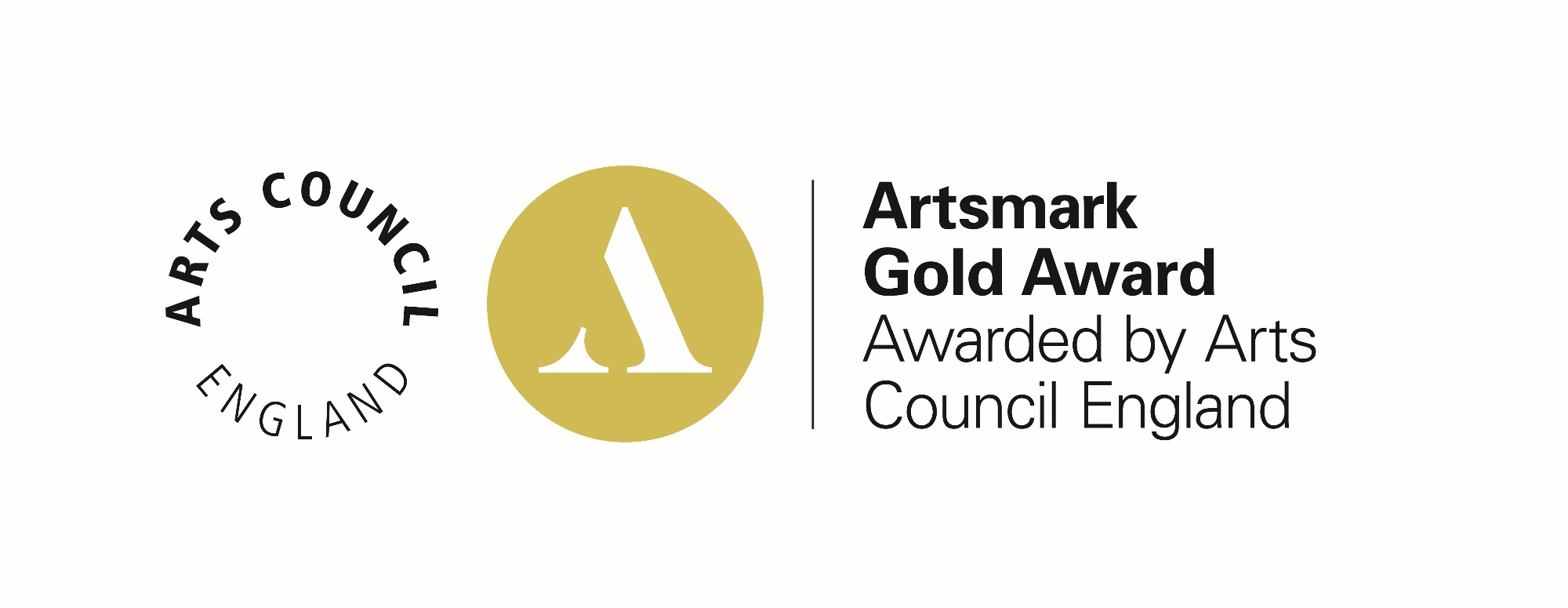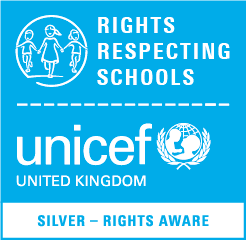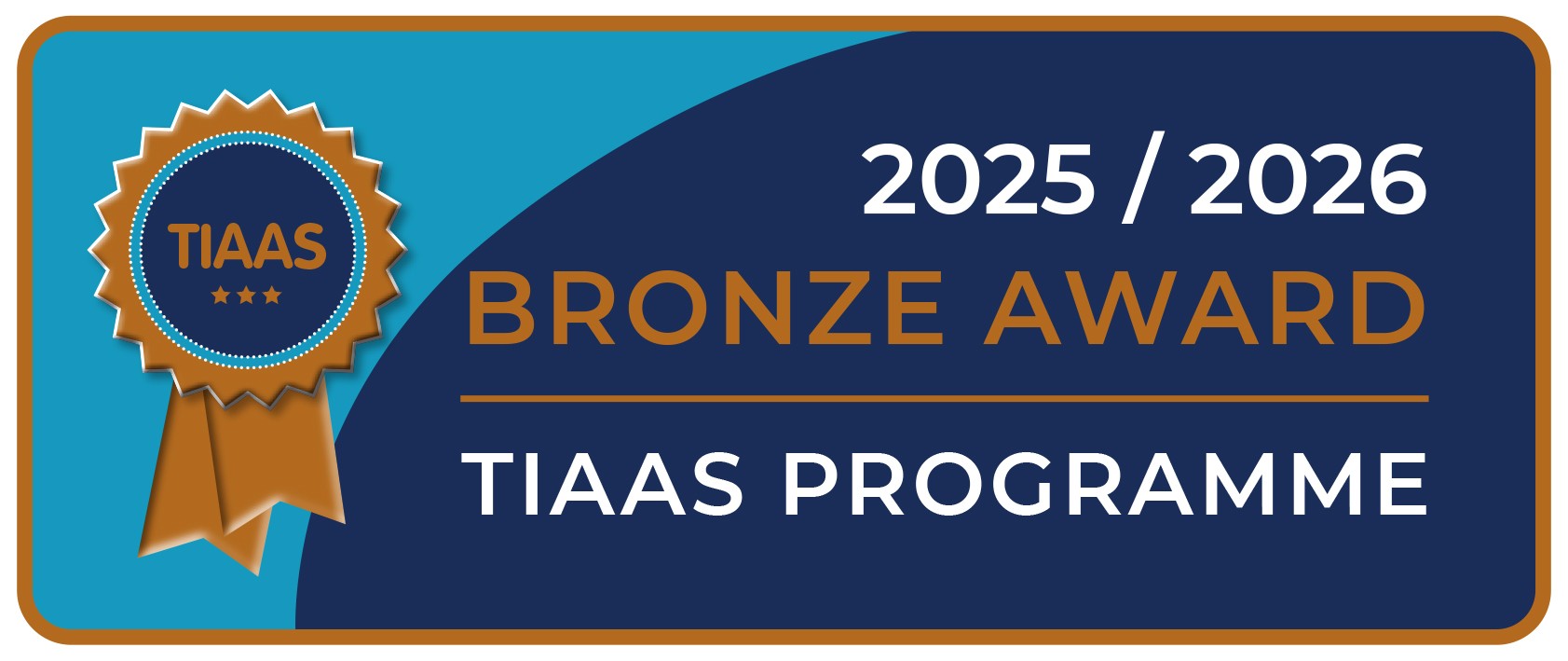World Faith & Philosophy (RE)
Intent
The aim of World Faith and Philosophy is to promote reflection, empathy, comprehension and interpretation of world beliefs, mainly through the study of Christianity, but also Hinduism, Judaism, Humanism and Islam. World Faith and Philosophy aims to foster attitudes such as curiosity, open-mindedness, tolerance, wonder, appreciation, respect and self-understanding through the Hampshire ‘Living Difference IV’ syllabus.
The aim, through World Faith and Philosophy, is to introduce children and young people to what a religious way of looking at, and existing in, the world may offer in leading one’s life, individually and collectively and to play an educational part in the lives of children and young people as they come to speak, think and act in the world.
Implementation:
At Langrish we follow the 2021 syllabus from ‘The Living Difference IV’ which: “affirms our commitment to an education that takes seriously the importance of children exploring their own lives in relation to what it can mean to live with a religious orientation on life, as well as other ways of life including those informed by a non-religious perspective.” (Living Difference IV foreword).
We use this syllabus throughout the school and teach World Faith and Philosophy through concepts; these are divided into 3 interconnecting groups:
A concepts (common to all people, for example, remembering, specialness, celebration, rights, compassion, justice);
B concepts (shared by many religions, for example, God, worship, symbolism);
C concepts (distinctive to particular religions, for example, resurrection).
There are also ‘golden thread’ concepts : belonging, communicating, special and love, which are revisited throughout the key stages, each time gaining a greater depth of enquiry.
Click here to view Hampshire's 'Living Difference IV' syllabus that we use to deliver our World Faith and Philosophy curriculum.
At Langrish, World Faith and Philosophy (RE) is taught through a ‘cycle of enquiry’ and is concerned with exploring how beliefs and values impact on the way people behave and should encourage respect for others’ beliefs and values, irrespective of children’s own faith or those children who have no religious or faith experience: raising global awareness for all children and adding to their cultural capital. For this reason we, at Langrish, have named RE ‘World Faith and Philosophy’ to allow children to arrive at the subject without pre-conceptions.
Our long term plan:
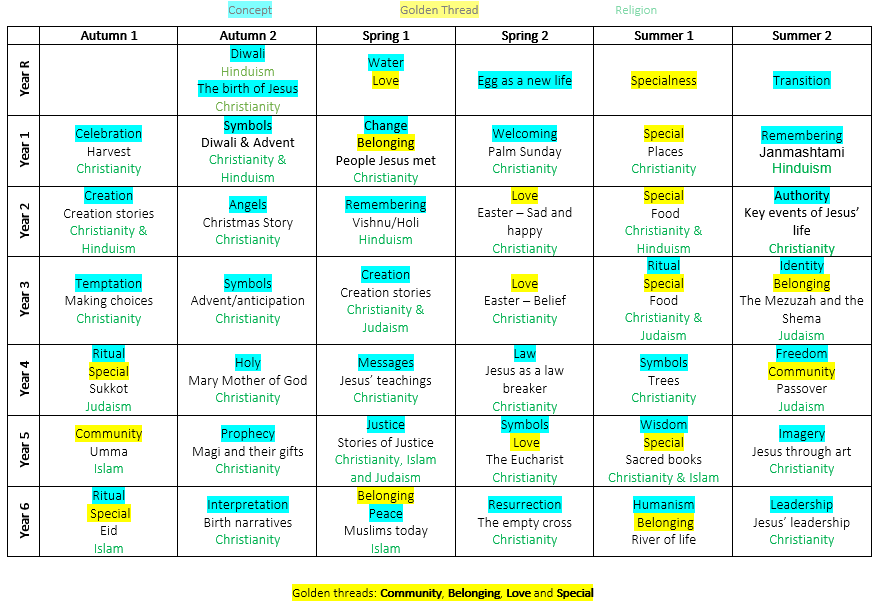
Impact:
Half-termly focus religion 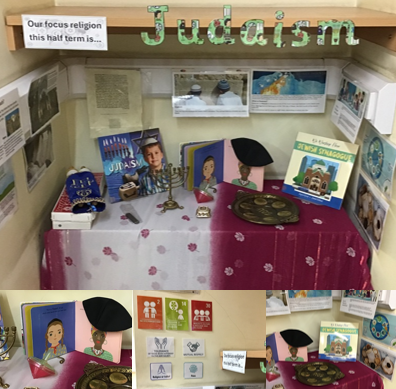
We are excited to introduce our new interactive world religions display, which will focus on a different religion each half term. The display features key facts, books and a range of objects for pupils to explore, encouraging curiosity, discussion and deeper understanding. By engaging with hands-on resources and informative materials, children are able to develop respect and appreciation for the diverse beliefs and cultures that shape our world. This half term our focus is Judaism.
Carol Service 2026
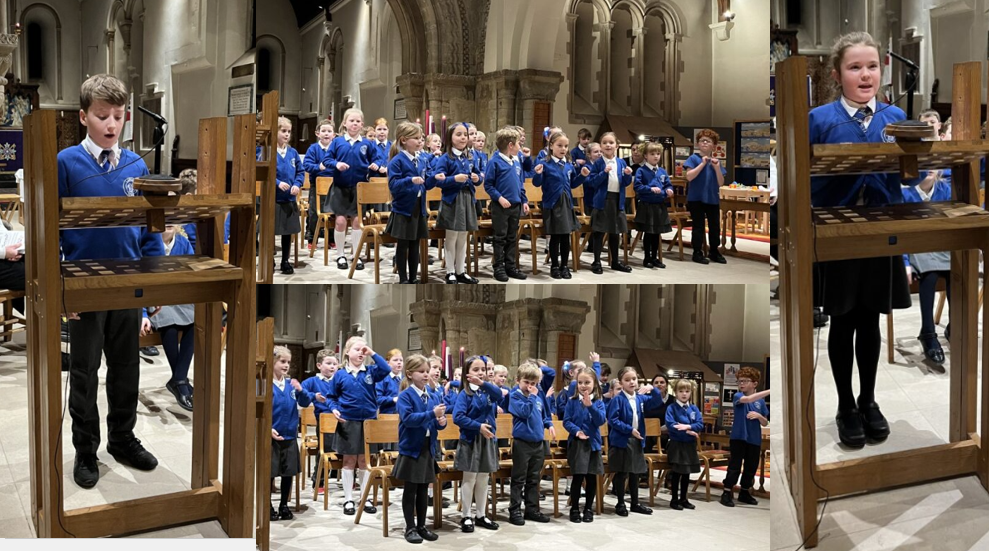 We were delighted to return to St Peter’s Church for our much-loved Carol Service this year. Year 6 pupils confidently led the readings, while our wonderful Year 2 and 3 choir filled the church with festive music. It was heart-warming to see so many families come together to celebrate and enjoy the occasion. Thanks to everyone’s generosity, over £200 was raised, with proceeds shared between St Peter’s Church and the RSPCA—a truly joyful event with a lasting impact.
We were delighted to return to St Peter’s Church for our much-loved Carol Service this year. Year 6 pupils confidently led the readings, while our wonderful Year 2 and 3 choir filled the church with festive music. It was heart-warming to see so many families come together to celebrate and enjoy the occasion. Thanks to everyone’s generosity, over £200 was raised, with proceeds shared between St Peter’s Church and the RSPCA—a truly joyful event with a lasting impact.
Year 1 Harvest Assembly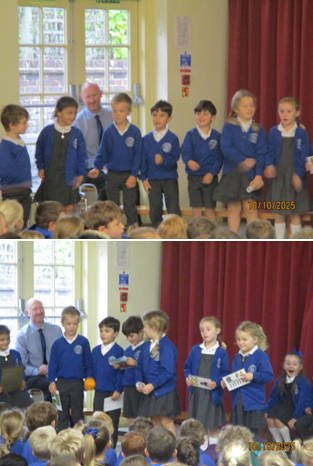
Harvest refers to the time during autumn when farmers traditionally brought in the crops that supplied their community through the year. Although our food today is more likely to come from the supermarket, Christians believe it is still important to remember God as creator and thank Him for the good things He provides.
Many churches do this annually at a Harvest Thanksgiving service. At this service, members of the congregation might bring gifts of food and flowers to decorate the church building as a sign of their thanks to God. These gifts may later be taken to needy or elderly people in the neighbourhood.
Year 1 led our Harvest Assembly once again, reminding us to be thankful for what we have and to give to those who have less than us.
Sukkot celebrations 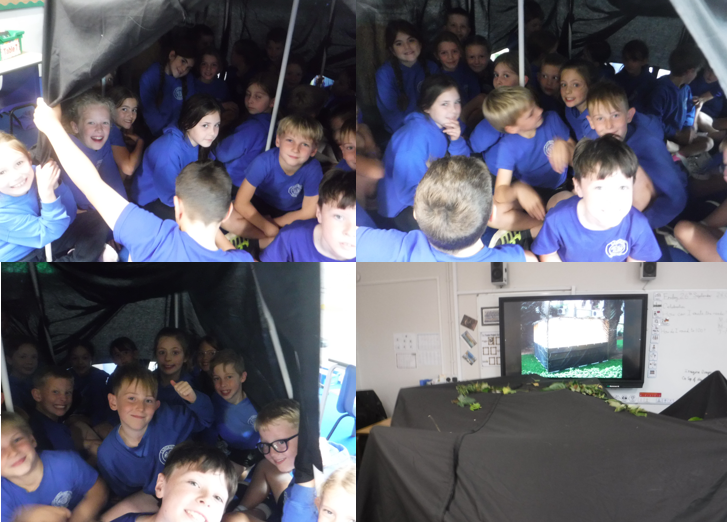
Sukkot is a festival celebrated by Jewish people around the world, starting on 29 September, and lasting for one week (or eight days in countries outside Israel) ending on 6 October.
The festival is a way to give thanks for a successful harvest, and is also a reminder of the Exodus - a time when Moses led his people out of slavery in Egypt.
People celebrate Sukkot at home and at a synagogue with family and friends, with a big meal at the end.
Monthly Vicar Visits
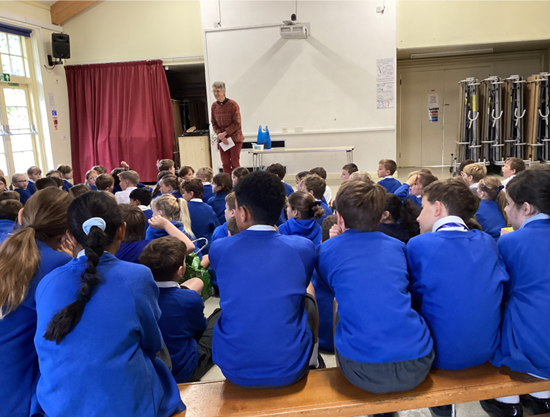 This half term, we had a vicar visit our school to deliver an assembly to KS1 and KS2. She delivered a brilliant talk about one of our school values (curiosity), and then told the children about her passions for science, being a scientist herself for years. She brought in acorns she had found, asking the children lots of questions about Oak trees and how long it takes for them to grow. She finished with a prayer that Langrish was welcome to join into if they wished. It was a lovely assembly, which links nicely to the British Value of respecting others and their faiths.
This half term, we had a vicar visit our school to deliver an assembly to KS1 and KS2. She delivered a brilliant talk about one of our school values (curiosity), and then told the children about her passions for science, being a scientist herself for years. She brought in acorns she had found, asking the children lots of questions about Oak trees and how long it takes for them to grow. She finished with a prayer that Langrish was welcome to join into if they wished. It was a lovely assembly, which links nicely to the British Value of respecting others and their faiths.
Religions in our school
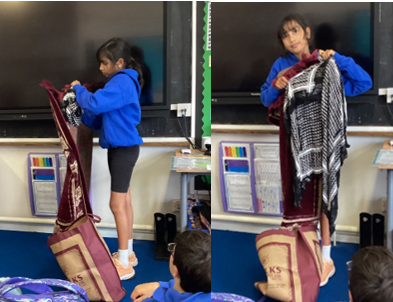 Now that she is in Year 5, one of our pupils has begun to explore her religion further during Ramadan. Once the sun sets, Muslims break their fast with water or a date and then have a feast and make their traditional foods and eat whatever they want until sunrise. The process continues for about 29-30 days. She uses her prayer mat, pointing towards Mecca, during this time. She has already taken part in 3 of the 5 pillars of Islam, helping her to feel more connected to her religion.
Now that she is in Year 5, one of our pupils has begun to explore her religion further during Ramadan. Once the sun sets, Muslims break their fast with water or a date and then have a feast and make their traditional foods and eat whatever they want until sunrise. The process continues for about 29-30 days. She uses her prayer mat, pointing towards Mecca, during this time. She has already taken part in 3 of the 5 pillars of Islam, helping her to feel more connected to her religion.
Carol Service 2025
This year, we re-introduced our family carol service at St Peter's Church in Petersfield. It was great to be back in church with our junior choir singing some festive tunes, our Year 6 readers and family carol singing: a truly special occasion. After the service, we asked for optional donations to both the church and Hampshire and Isle of Wight Air Ambulance, as voted for by the pupils, raising an incredible £222 for both these worthy causes.

UNCRC in WFaP
As always, the approach to RE in Hampshire, the Isle of Wight, Portsmouth and Southampton schools is consistent with the United Nations Convention on the Rights of the Child (UNCRC), particularly Articles 8, 12, 13, 14, 29 and 30, and supports the work of Rights Respecting Education (RRE) at Langrish School.
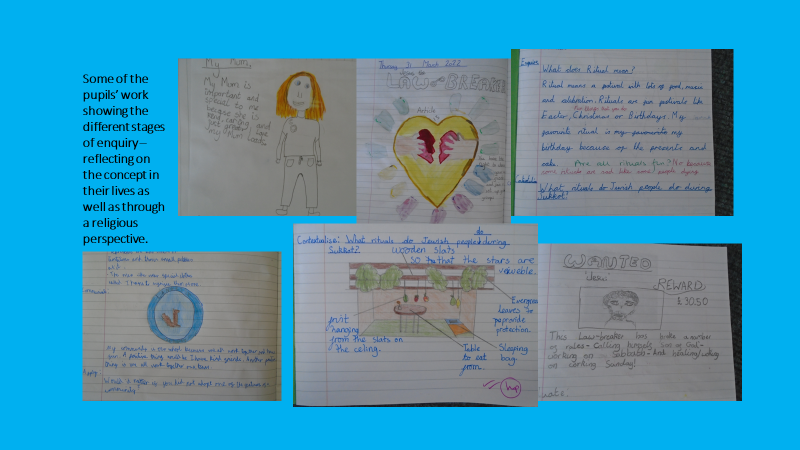
Religious visitors
Reverend Good talking to Year R children about the use of water in Baptism.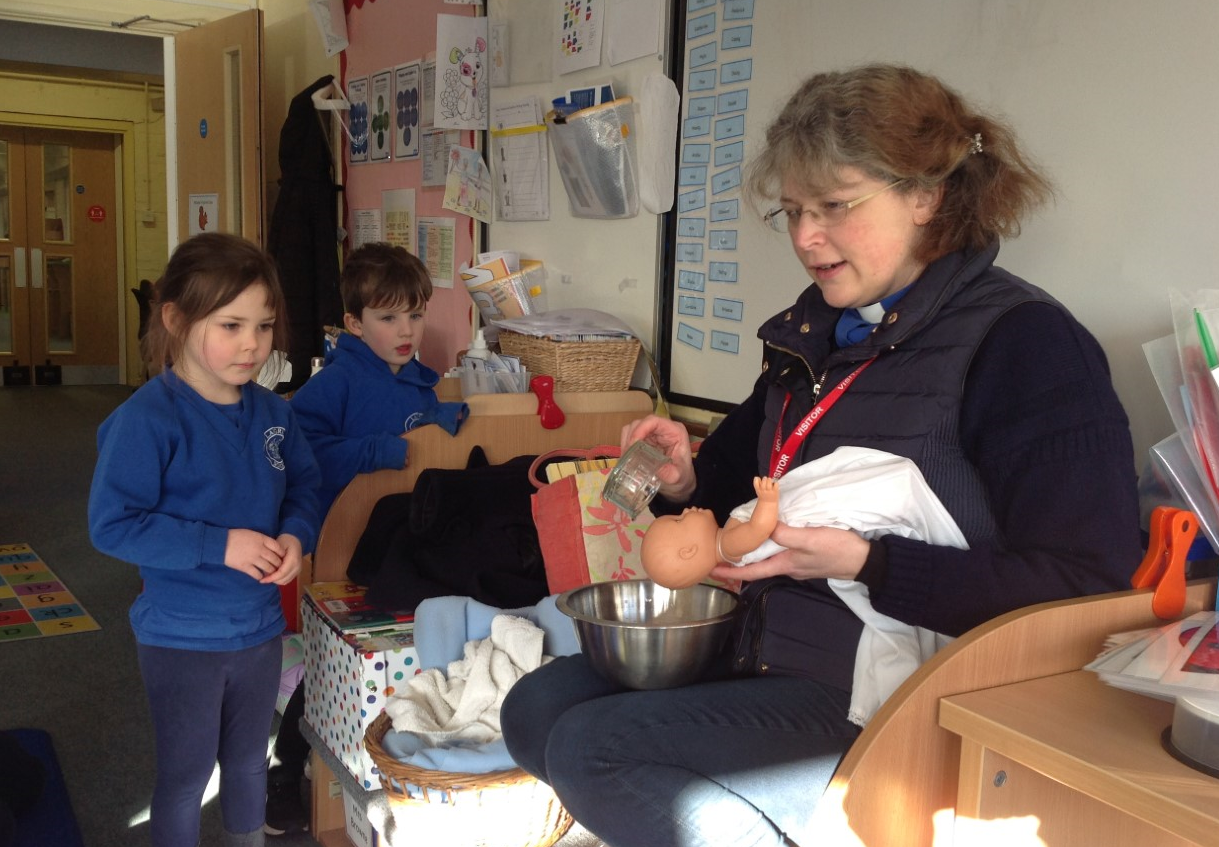
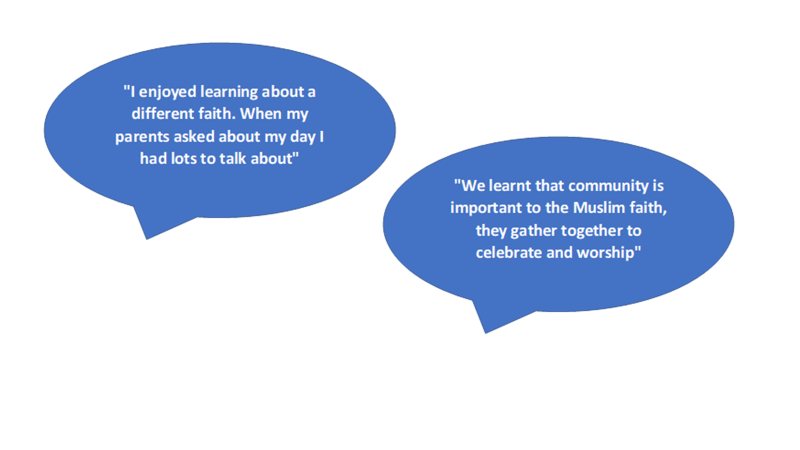
Hamza visiting Year 5 and 6 to talk about life as a Muslim.
